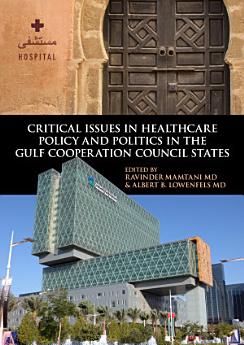Critical Issues in Healthcare Policy and Politics in the Gulf Cooperation Council States
About this ebook
Rapid changes to the population and lifestyles of the GCC states have completely changed—and challenged—the region’s health profile and infrastructure. While major successes in combatting infectious diseases and improving standards of primary healthcare are reflected in key health indicators, new trends have developed; increasingly “lifestyle” or “wealthy country” diseases, such as diabetes, heart disease, and cancer, have replaced the old maladies. To meet these emerging healthcare needs, GCC states require highly trained and skilled healthcare workers, an environment that supports local training, state-of-the-art diagnostic laboratories and hospitals, research production and dissemination, and knowledge acquisition. They face shortages in most if not all of these areas. This book provides a comprehensive study of the rapidly changing health profile of the region, the existing conditions of healthcare systems, and the challenges posed to healthcare management across the six states of the GCC.
About the author
Ravinder Mamtani, MD, is professor of healthcare policy and research, professor of integrative medicine, and associate dean for global and public health at Weill Cornell Medicine-Qatar. He is a specialist in occupational and general preventive medicine, public health, and integrative medicine.
Albert B. Lowenfels, MD, has been associated with New York Medical College as professor of surgery and also as professor of community and preventive medicine.




